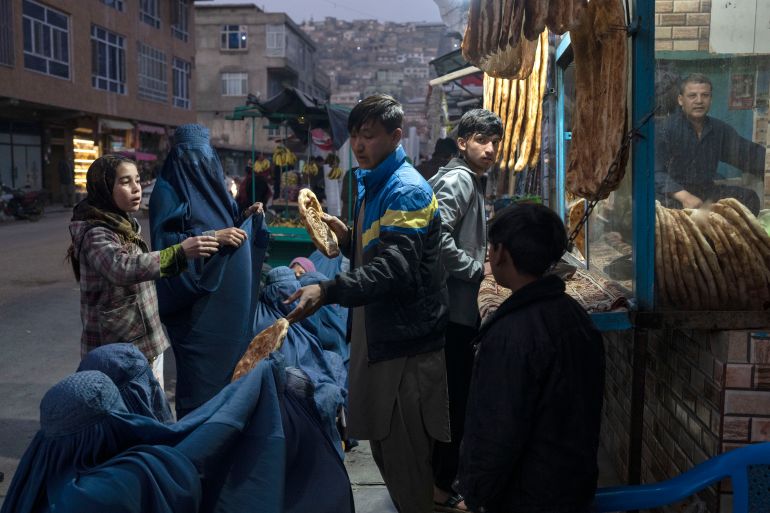People across Afghanistan celebrated Eid on Sunday, but for millions of Afghans, it was yet another day of struggle to bring food to the table.
More than 90 percent of Afghans have been facing a shortage of food, according to the United Nations. Jamal, who did not wish to share his real name, is among those for whom Eid, which marks the end of the Muslim holy month of Ramadan, brought little joy.
The 38-year-old has struggled to make ends meet as the country finds itself gripped by a severe humanitarian crisis triggered since the Taliban takeover last August.
A few pieces of bread from the nearby bakery is what Jamal could secure for his family of 17 members. Some of it will be saved for later to be had with whatever meal they are able to receive from charitable friends and neighbours.
“But I don’t expect we will get much even for Eid. Who will give me money or food? The whole city is living under poverty. I never saw anything like it even in the refugee camps where I grew up,” he said, referring to his upbringing in refugee camps in neighbouring Pakistan.
A former junior-level government official, Jamal spent most of the month of Ramadan looking for work or support to find food for sehri (suhoor in Arabic), the pre-dawn meal, and for iftar, the meal to break one’s fast at dusk. Ramadan is the holiest month in the Islamic calendar during which Muslims fast from dawn to dusk.
‘The worst Ramadan of my life’
Jamal says his situation wasn’t always so dire. He recalls previous Ramadans – a time of prayers, spiritual reflection, and family.
“Every Ramadan and Eid we come together with the family and community to worship. This month and the Eid has always been about unity and forgiveness for us, but this year it has been the opposite,” Jamal said.
Read full story on Al Jazeera
